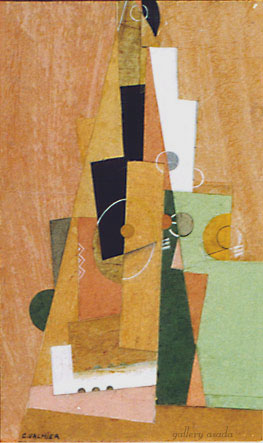 |
The fragmentation and discontinuity in "Songs to Joannes",
as Peter Quartermain analyzes in his essay, are reflected in the vocabulary
and syntax:
1. the reference to body-fluids and to body-parts
2. mixing of vocabularies--especially the clinical or scientific with
the colloquial and the
"conventional" poetic
3. a number of "unresolved" binaries
4. the "liberating" line-break, phrase-boundary, punctuation
etc.
What are the effects and feelings these characteristic usage of language
bring to this love song sequence? How does the form convey the meaning
of each poem? What do you think of the many binaries and recurring
images setting up in this sequence?
|
|
 |
Unlike the traditional lyrical, sentimental love songs, "Songs
to Joannes" are full of lust, sexual love and even metaphors
of male/female organs. How do you perceive this female speaker who
freely evokes tabooed "fantasies"? Is she a "woman
rebel" like Burke suggests or does she eventually "choke
on" her own sexual frankness and somehow retreat from the "suspect
places" into "watchful, 'virginal' seclusion" (Selinger
19)?
|
|
 |
The loved "Joannes" is portrayed as a "skin-sack/In
which a wanton duality/Packed/All the completion of my infructuous
impulses" (P2)with "driveling humanity" (P15)who "got
home to [him]self--first" (P5). What kind of man is this? How
does it cause the separation and distancing between the lovers?
|
|
 |
"Bird-like abortion" in poem 4 and "a round vacuum/Dilating
with my breath" in poem 17 as well as other hints in the sequence
seem to suggest a real abortion, the loss of a child. How does this
physical and psychological wound influence the relationship between
the lovers? And how does this "lack" affect the speaker's
view of this relationship and of herself?
|
|
 |
DuPlessis comments that "as she represents sexual intercourse,
the loss of individual gender binaries was an advantage and a pleasure,
the place where disparate gender interests merge. But there is danger:
a lust for orgasm necessarily overrides a sense of ego or boundaries."
(74) Throughout the sequence we indeed see the struggle of the speaker
over the possibilities of "Depersonalized/Nirvana" (P13)
and "Own-self distortion/Wince in the alien ego" (P29),
hoping to enter a new union heaven "the threshold of [Joannes']
mind" (P2)but "Never reaching-------" (P7). Then how
does the ending "Crucifixion", "Evolving" poems
and the final definition of Love as "the preeminent litterateur"
conclude the seemingly impossible ideal, love and the new self?
|
|
